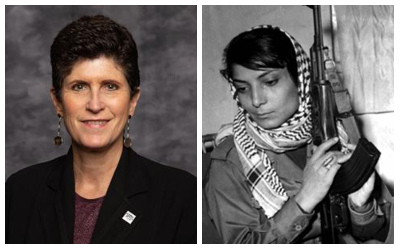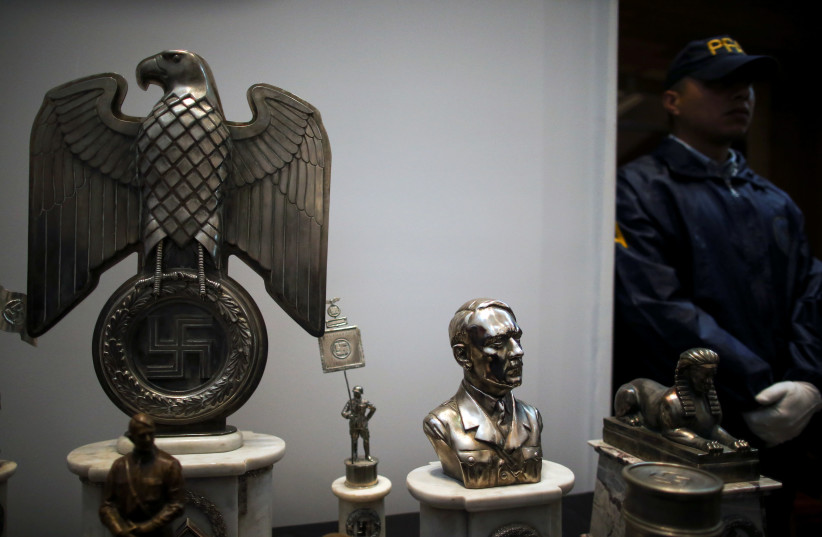 Władysław Studnicki (Fot. NAC)
Władysław Studnicki (Fot. NAC)
 Szminkowanie świni.Piotr Zychowicz rehabilituje antysemitę Władysława Studnickiego
Szminkowanie świni.Piotr Zychowicz rehabilituje antysemitę Władysława Studnickiego
Adam Leszczyński
Piotr Zychowicz próbuje zrehabilitować postać Władysława Studnickiego – germanofila i antysemity, polityka tak skrajnego, że nawet naziści uznali go za wariata. Rezultaty tej rehabilitacji są nieprzekonujące.
.
Bohaterem (i to w sensie dosłownym, a więc postacią pozytywną) liczącej 600 stron książki Zychowicza jest Władysław Studnicki (1867-1953), polityk skrajnej prawicy, antysemita i germanofil, posądzany przez lata o kolaborację (do tej kwestii jeszcze wrócimy). Studnicki był obsesyjnym antykomunistą i wrogiem Rosji, politykiem uważanym nawet przez współczesnych za marginalnego szaleńca. Przed wojną była to postać rangi Bolesława Tejkowskiego czy Janusza Korwin-Mikkego w III RP – człowiek znany i jakoś w polityce aktywny, coś pisał i coś publikował, ale nikt tego nie traktował szczególnie poważnie. Studnicki – całe szczęście – przez całe życie był pozbawiony realnego wpływu na cokolwiek. Przy całym szaleństwie i skrajności poglądów była to jednak postać ciekawa i barwna.
Tę barwność umiał wydobyć i pokazać Zychowicz, publicysta prawicowy, ale nieunikający naruszania rozmaitych tabu, które prawica dzisiaj otacza nabożną czcią. Napisał np. książkę o tym, że powstanie warszawskie było politycznym i moralnym błędem (a właściwie obłędem, stąd jej tytuł „Obłęd ’44”). Ta nieprzesadnie kontrowersyjna teza – nawet twórcy Muzeum Powstania Warszawskiego nie byli w stanie ukryć, że powstanie było wielką klęską i nie osiągnęło zakładanych politycznych celów, czyli zainstalowania w Warszawie rządu z Londynu przed wejściem Sowietów – zyskała Zychowiczowi nieco na wyrost opinię głosiciela prawd niewygodnych i obrazoburczych.
Piotr Zychowicz bawił się doskonale
Mogę sobie zatem wyobrazić, że bawił się doskonale, pisząc książkę o Studnickim. Wydobył ze względnego zapomnienia postać marginalną; wybielał ją i pucował jej życiorys intensywnie na kilkuset stronicach, próbując zdjąć ze Studnickiego opinię kolaboranta i żydożercy. Wreszcie stawiał pytanie, czy Polsce nie byłoby lepiej, gdyby poszła z Hitlerem na Moskwę w roku 1939 r. Wyszło ciekawe i ambitne ćwiczenie w obcowaniu ze źródłami, ale też Studnicki nie poddaje się łatwo takiej upiększającej obróbce. Zabiegi Zychowicza nad Studnickim przypominają aż nadto często szminkowanie świni. Może i coś dają, ale spod spodu cały czas wygląda coś niezbyt pięknego.
Nie da się przy tym odmówić Studnickiemu ani osobistej odwagi, ani bezinteresowności – tyle Zychowiczowi udało się osiągnąć.
Widać w tej postaci coś ze szlacheckiej fantazji, uporu i pieniactwa – konsekwencji w realizowaniu najbardziej szalonych i utopijnych zamierzeń.
Był staropolskim oryginałem w starym stylu. Czasami zachowywał się jak zupełny wariat, idąc do Gestapo i składając memoriały Hitlerowi z księżycowymi propozycjami politycznymi (Niemcy też go tak traktowali – jak wariata, zamykając od czasu do czasu, ale ostatecznie zostawiając przy życiu).
W II RP poglądy Studnickiego skazywały go na marginalizację. Ówczesny obóz narodowy – stara endecja zgrupowana wokół Romana Dmowskiego – był wściekle antyniemiecki. Dla lidera Narodowej Demokracji Niemcy były głównym zewnętrznym cywilizacyjnym wrogiem Polski, a wewnętrznym byli Żydzi. W latach rewolucji 1905-07 Dmowski próbował wynegocjować z Rosjanami autonomię Królestwa w zamian za lojalną (wobec caratu) pomoc w zwalczaniu polskich socjalistów. U tych ludzi germanofil Studnicki nie miał czego szukać. Młoda polska prawica, nasi młodzi faszyści, mogła podziwiać Hitlera za to, co zrobił z demokracją w Niemczech oraz z własnymi Żydami i socjalistami, ale Niemcom nie ufała. Studnicki pozostawał więc wolnym elektronem, publicystą tworzącym fantastyczne koncepcje sojuszu polsko-niemieckiego, które miały wówczas mniej więcej takie szanse na wejście w życie jak dziś teorie podatkowe Janusza Korwin-Mikkego. Czyli żadne.
Ekwilibrysta Zychowicz
Zychowiczowi nie udaje się wybronić Studnickiego przed zarzutem antysemityzmu. Poświęca mu chwilę uwagi (może ze 20 stron na 600) w rozdziale końcowym pod zabawnym tytułem „Kwestie sporne”. Tytuł jest zabawny, ponieważ antysemityzm Studnickiego był bezsporny (i obsesyjny, co się u nas często zdarzało). Popierał, choć z pewnymi zastrzeżeniami, powszechne wówczas na prawicy i w kręgach rządowych koncepcje zmuszenia polskich Żydów do masowej emigracji.
Zychowicz dokonuje cudów ekwilibrystyki, żeby różne szkaradne wypowiedzi Studnickiego na ten temat wytłumaczyć.
„Żadne ekscesy antysemickie ani wzmożone i systematycznie prowadzone bojkotowanie Żydów w Polsce nie dokona ważnego dla naszego rozwoju i bytu procesu odżydzenia Polski” – pisał np. Studnicki, co Zychowicz interpretuje jako apel o powstrzymanie się od przemocy, a co w istocie stanowi tylko przyznanie, że te metody są nieskuteczne.
Snute przez Studnickiego koncepcje „odżydzenia Polski” mogą budzić tylko obrzydzenie. Zychowicz próbuje go usprawiedliwiać, pisząc, że podobne, równie obrzydliwe pomysły miał pod koniec lat 30. rząd RP (prawda) oraz że na emigracji zależało także Żydom z prawicy syjonistycznej (też prawda). Nie czyni to ich jednak mniej obrzydliwymi, o czym Zychowicz już nie napisał. „Oczywiście nie jest to epizod z dziejów II Rzeczypospolitej, z którego powinniśmy być szczególnie dumni” – dodaje publicysta na koniec. Szminka nie pomogła. Spod tapety wyjrzał potwór.
Sprawa kolaboracji również nie wygląda dobrze. Studnicki pisywał memoriały do najwyższych władz nazistowskich, proponując m.in. powołanie marionetkowych władz polskich oraz polskiego wojska, które pomogłoby w pokonaniu Sowietów. Zychowicz próbuje to tłumaczyć na różne sposoby: a to tym, że Studnicki próbował ugrać swoje koncepcje polityczne; a to tym, że pomagał różnym ludziom, którzy dzięki jego wstawiennictwu wychodzili z kazamatów Gestapo; a to próbą „ratowania państwa po pogromie”, jak tłumaczył się sam Studnicki po wojnie.
Studnicki – kolaborant nieudany
Zychowicz przekonuje, że Studnickiego oburzały okrucieństwa niemieckie. Może i oburzały, ale współpracę jednak proponował Niemcom przez lata. Polska opinia publiczna uznała go za kolaboranta, który formalnej współpracy nie podjął tylko dlatego, że okupant nie był nią zainteresowany. Tego również nie udaje się Zychowiczowi z tej biografii wymazać, chociaż na różne kreatywne sposoby stara się przedstawić decyzje Studnickiego w jak najlepszym świetle.
Czy to jest w porządku wobec czytelnika? Myślę, że tak: dyskusja o przeszłości powinna być jak najbardziej zróżnicowana. Historia jest za często – jak napisała wybitna teoretyczka metodologii historii prof. Ewa Domańska – „dyscypliną policyjną”: wykorzystuje się ją do tego, aby wszyscy o przeszłości myśleli to samo w ten sam sposób. Różnorodność i prowokacja mają ogromne zalety – zmuszają ludzi do myślenia. Pomnika nikt Studnickiemu nie postawi, ale była to postać arcyciekawa. Można ją potraktować żółcią, można szminką, jak zrobił to Zychowicz. Jego książkę warto jednak czytać uważnie – żeby nie dać się autorowi nabrać i nie uwierzyć, że Studnicki był mężem stanu. Nie był. Był klasycznym polskim politycznym wariatem.
Dr hab. Adam Leszczyński – socjolog i historyk, profesor Uniwersytetu SWPS, dziennikarz OKO.press. W listopadzie 2020 r. ukaże się jego „Ludowa historia Polski”
Piotr Zychowicz, “Germanofil”, Rebis
 Piotr Zychowicz, ‘Germanofil’, Rebis
Piotr Zychowicz, ‘Germanofil’, Rebis
Zawartość publikowanych artykułów i materiałów nie reprezentuje poglądów ani opinii Reunion’68,
ani też webmastera Blogu Reunion’68, chyba ze jest to wyraźnie zaznaczone.
Twoje uwagi, linki, własne artykuły lub wiadomości prześlij na adres:
webmaster@reunion68.com





